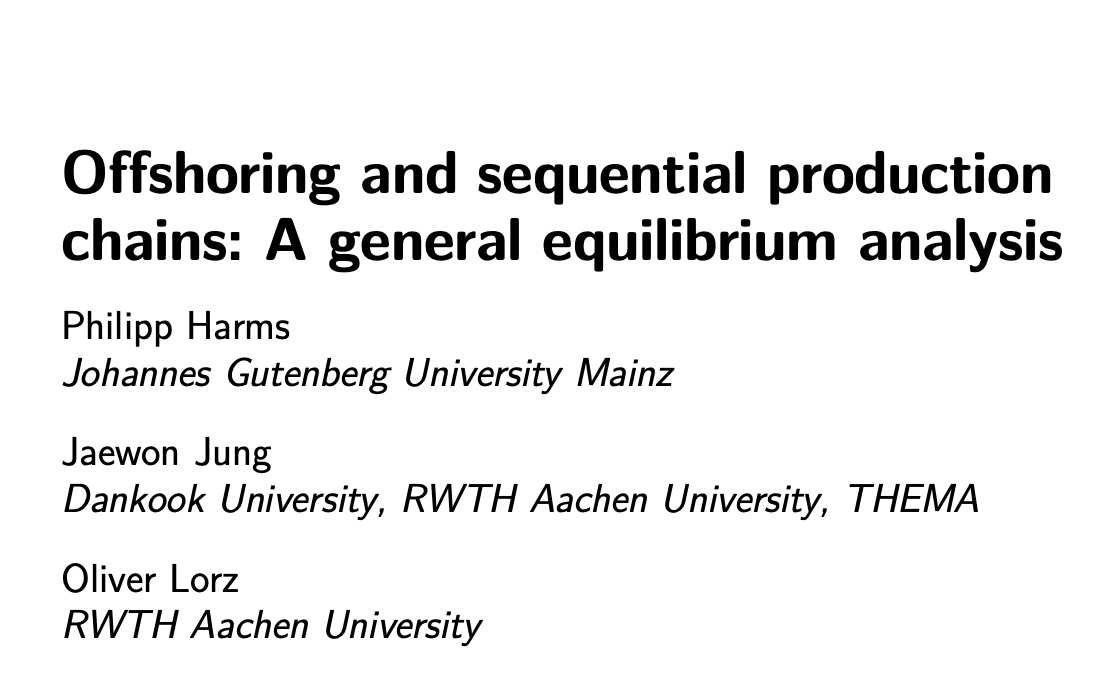︎
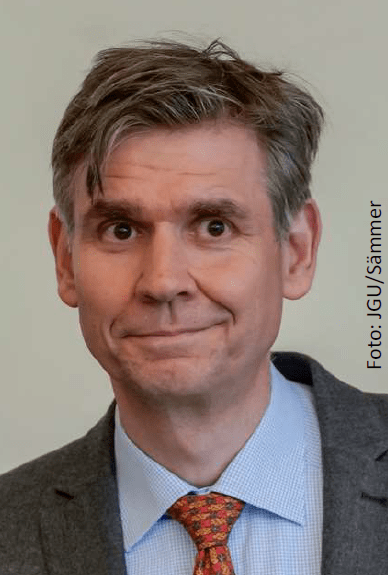
Philipp Harms
Johannes Gutenberg University Mainz
Philipp Harms is a Professor of International Economics at Johannes Gutenberg University Mainz, Germany. His research interests are in international economics, macroeconomics, and political economy. He holds a Ph.D. in Economics from University of St. Gallen, Switzerland.
MORE ABOUT PHILIPP HARMS >Jan 1, 2018
Philipp Harms, Jakob Schwab
Like it or not? How the economic and institutional environment shapes individual attitudes towards multinational enterprises
This paper analyses the determinants of people's attitudes towards foreign direct investment (FDI) using a survey‐based data set that covers a wide range of rich and poor countries. We find that both individual socioeconomic characteristics and macroeconomic and institutional factors shape ag...
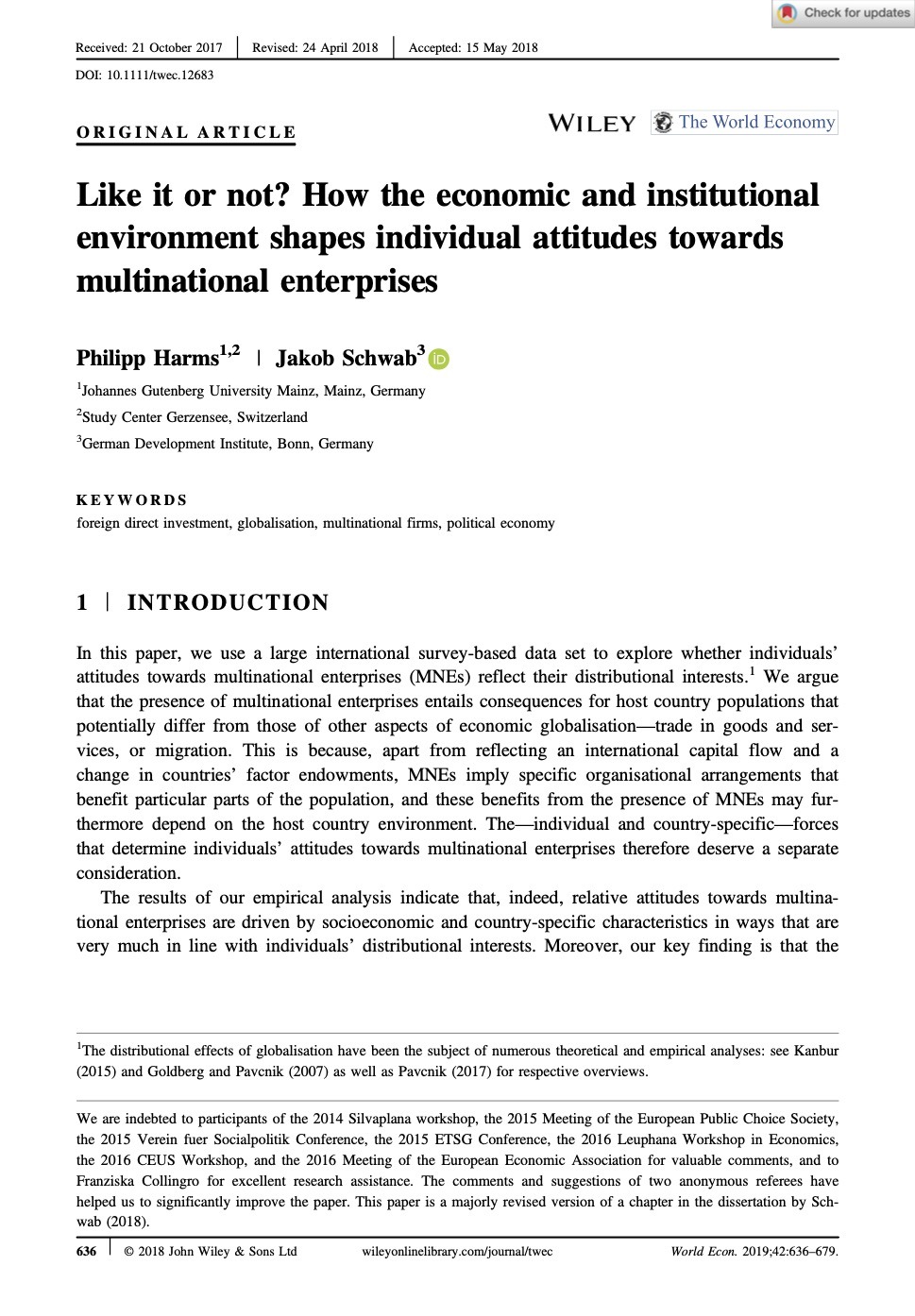
Jan 1, 2017
Philipp Harms, Pierre-Guillaume Méon
Good and useless FDI: The growth effects of greenfield investment and mergers and acquisitions
We explore the effect of foreign direct investment (FDI) on economic growth, distinguishing between mergers and acquisitions (M&As) and “greenfield” investment. A simple model underlines that, unlike greenfield investment, M&As partly represent a rent accruing to previous owners, and do ...
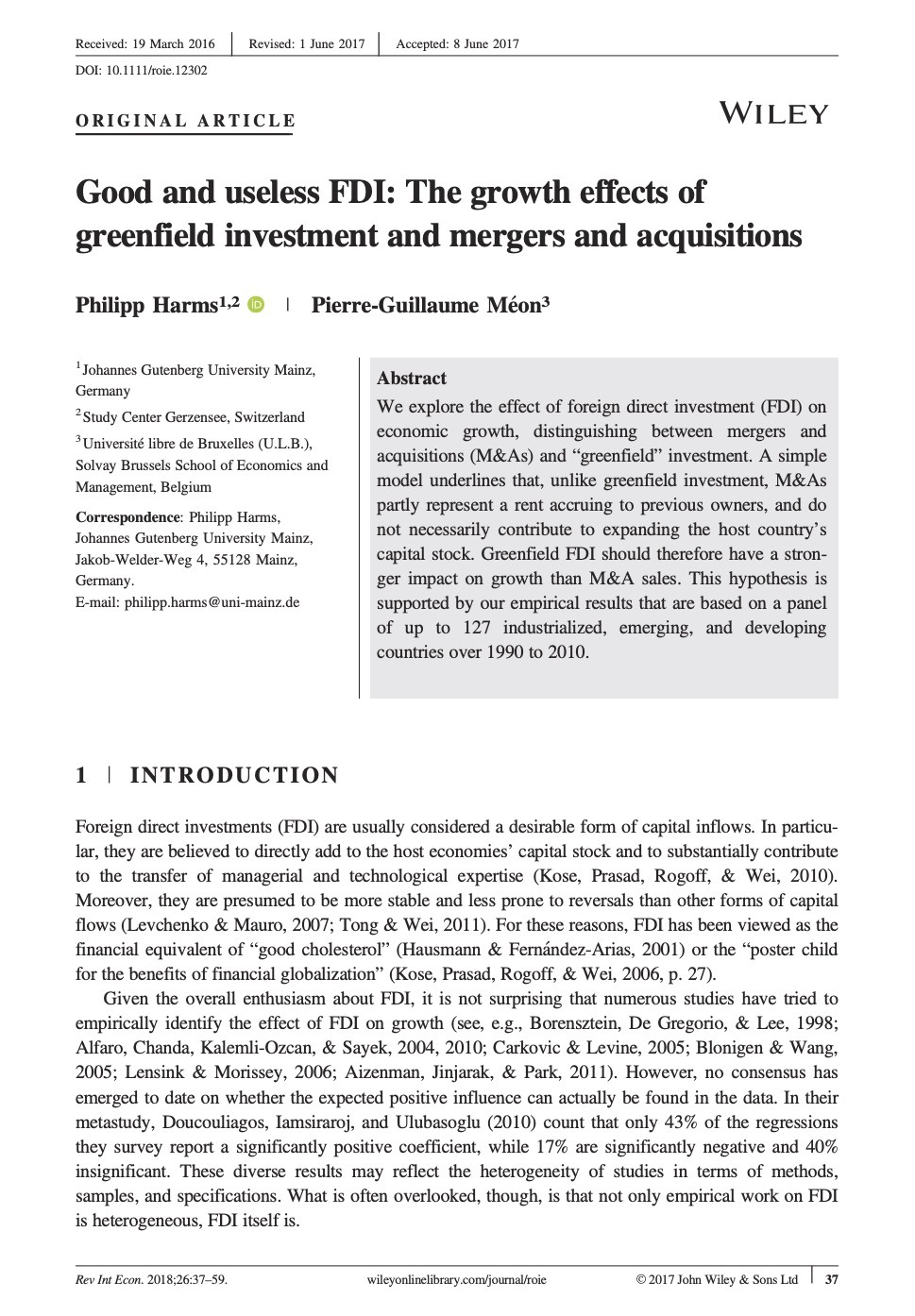
Jan 1, 2012
Philipp Harms, Oliver Lorz, Dieter Urban
Offshoring along the production chain
In this paper, we analyze the offshoring decision of firms whose production process is characterized by a particular sequence of steps. International cost differences vary non‐monotonically along the production chain, and moving unfinished goods across borders incurs transport costs. We show that,...
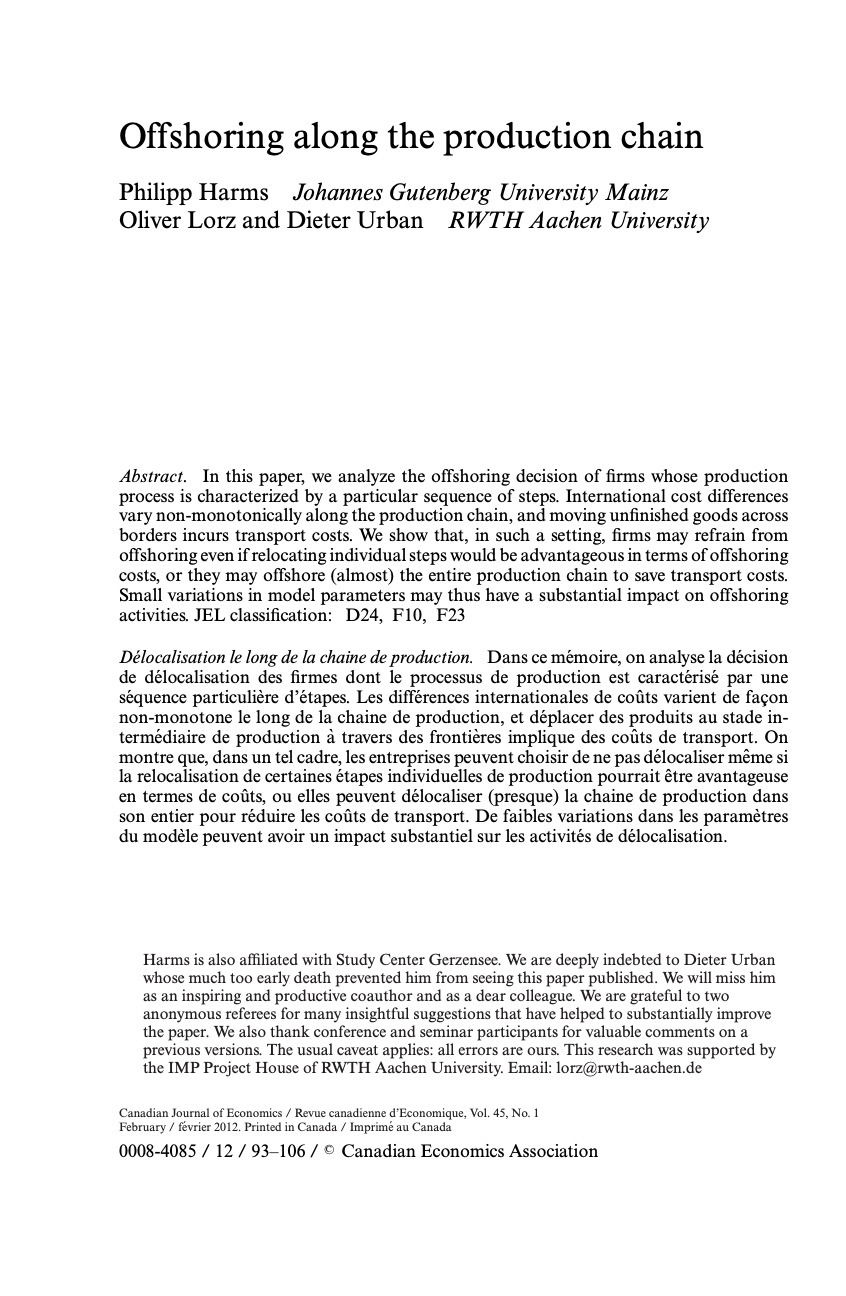
Aug 31, 2021
Monthly Seminar Series | Time to Say Goodbye? The Impact of Environmental Regulation on Foreign Divestment
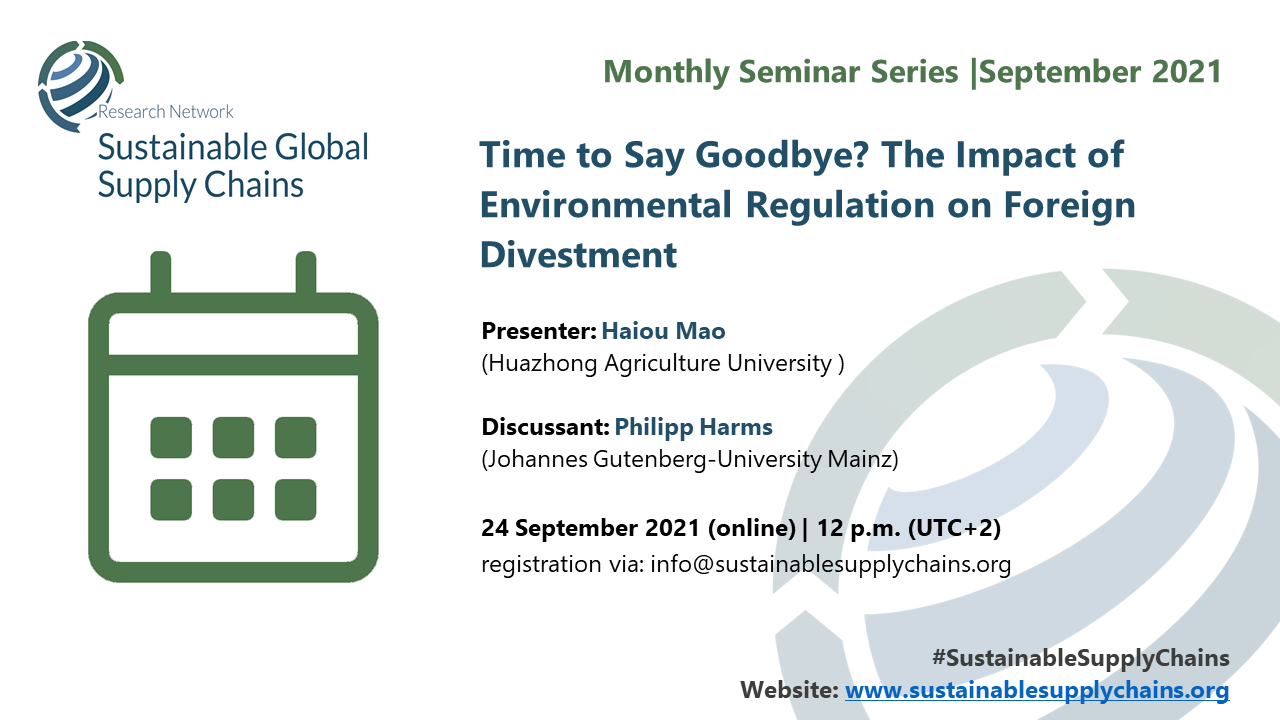
Mar 15, 2024
Philipp Harms, Jaewon Jung, Oliver Lorz
Offshoring and sequential productionchains: A general equilibrium analysis
We present a two-region general equilibrium model in which firms exploit international wage differences by offshoring parts of the production process. Firms have to take into account that production steps follow a strict sequence and that transporting intermediate goods across borders is costly. We ...
